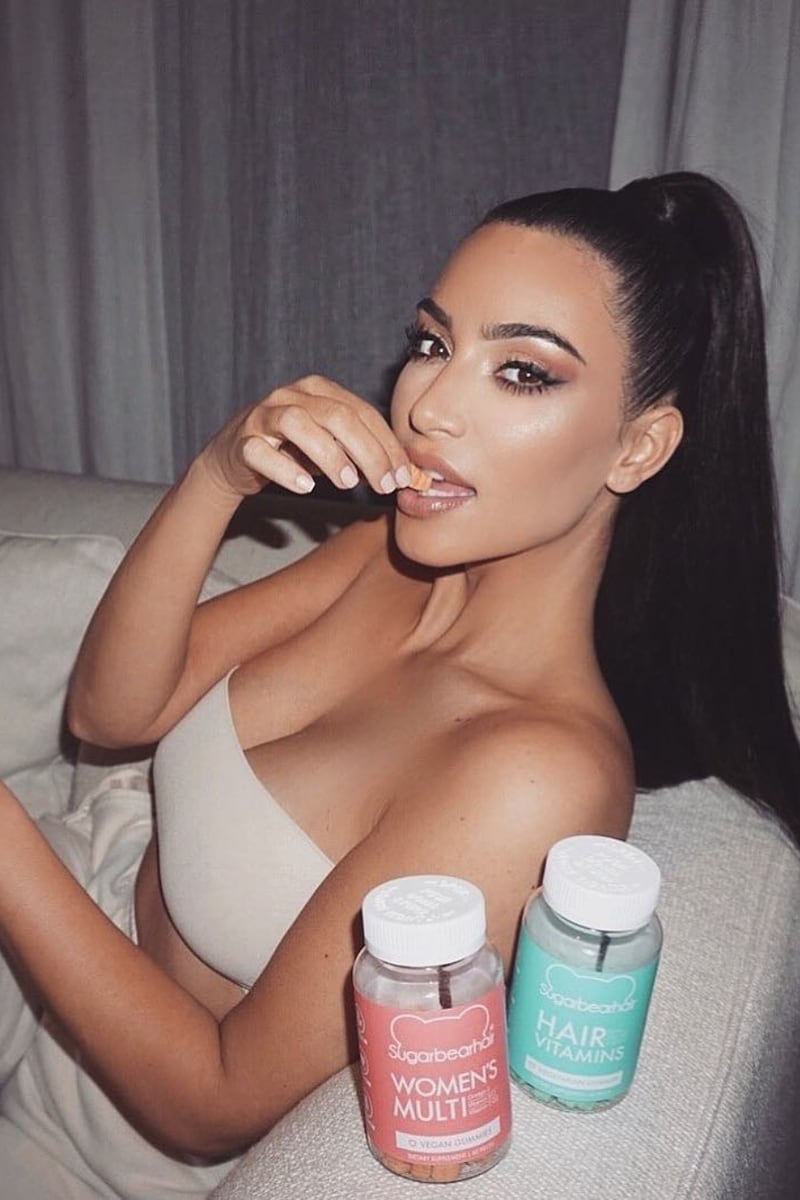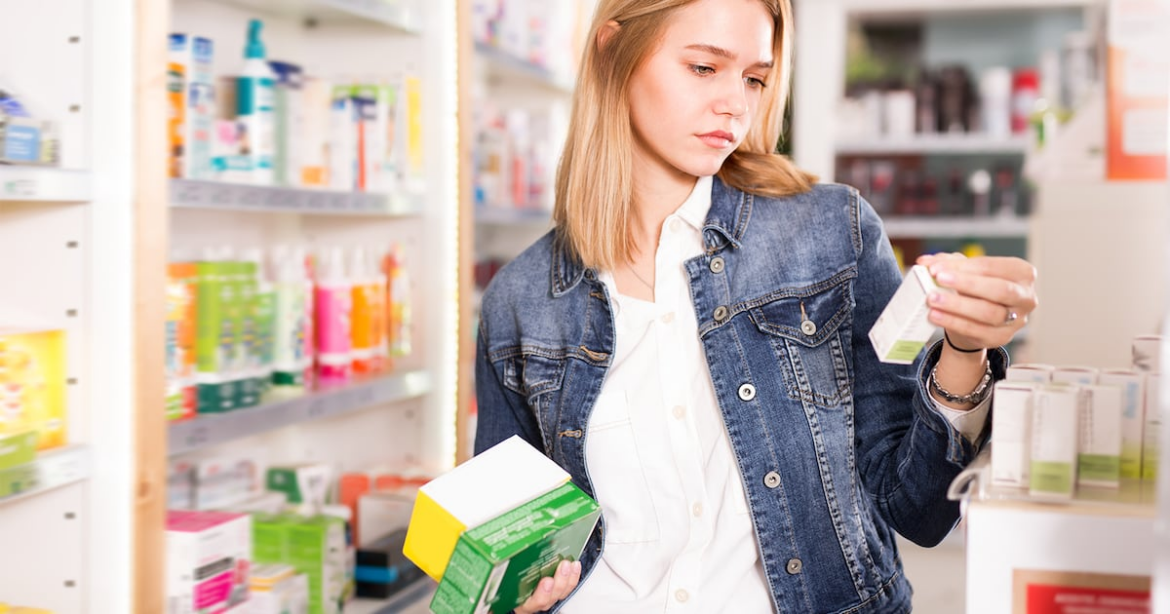When the US Food and Drug Administration passed the Dietary Supplement Health and Education Act, or DSHEA, in 1994, there were 4,000 supplements on the market. Today, there are close to 100,000.
Besides a 2007 supplementary rule which outlined good manufacturing processes in the industry, no major updates to DSHEA have been passed — even as the industry has ballooned. “This wouldn’t be a problem if the DSHEA law was really strong, but it’s not, which is why we’ve got a sceptical consumer marketplace,” said Lindsay Dahl, an environmental health advocate and the chief impact officer of vitamin company Ritual.
In this absence of authority, the responsibility to regulate products has fallen to practically everyone else: brands, retailers and most of all consumers. As demand grows, so does scepticism. According to data from market intelligence firm Mintel, the vitamin, supplement and mineral (VMS) industry market is expected to reach $41 billion this year, an increase of just over 5 percent from 2024. The same report revealed that nearly a third of shoppers wished there was more transparency about what’s inside those products.
This distrust has been stoked by an increasing number of public accusations and class action lawsuits alleging that certain vitamins are dangerous or even toxic. “People are really pushing authorities towards stricter oversight of what supplements are,” said David Hamlette, a wellness insights analyst at Mintel.
While Hamlette predicts such scrutiny will soon lead to tighter government regulation, distrust of government bodies such as the FDA themselves are beginning to grow, driven by the Make America Healthy Again movement.
While reform to DSHEA is frequently discussed, they’ve yet to materialise. Right now, consumers want safety, transparency, value-for-money and clean ingredients. Meanwhile, supplement formats will continue to proliferate beyond pills and gummies with experts predicting a boom in functional foods and beverages that contain ingredients like protein and fibre.
Brands hoping to cash in will have to understand how to cut through the noise of a saturated market with efficacious, benefit-led products. But they’ll also have to prepare for an intensely scrutinous customer base — ones who won’t be won over by claims on a label alone.
Regulating a Murky Market
In a courtroom, Kourtney Kardashian-Barker takes the stand. The Lemme co-founder is grilled by her sister Kim Kardashian — the prosecution — about her stellar gut-health and glowing skin. Lemme’s newest Colostrum gummies and liquid are quickly found guilty.
While the courtroom-based advert was timed to coincide with the launch of Kardashian’s new legal drama “All’s Fair,” it skirted closely to the legal scrutiny Kardashian-Barker’s own brand has endured. In 2024, a class action litigation firm launched an investigation into the brand for misleading marketing claims for a number of its products. Earlier this year, the brand’s GLP-1 gummies sparked a similar suit. Lemme declined to comment.
The Kardashian clan’s promotion far predates Lemme, which launched in 2023. Throughout 2016, Kim Kardashian, Khloe Kardashian and Kendall Jenner posted a series of paid-adverts for SugarBearHair, a line of vegan gummies designed for hair growth and overall wellness. An investigation into the gummies by independent testing company Labdoor revealed a number of discrepancies between the ingredients listed on the bottle, including “relatively high” levels of lead. Today, there is currently no hair vitamin product in the category ranked above a B+.
 Kardashian was one of the many celebrities who promoted SugarBearHair in the mid 2010s. (Instagram)
Kardashian was one of the many celebrities who promoted SugarBearHair in the mid 2010s. (Instagram)
Classed by the FDA as food, VMS products are regulated differently than drugs, which require FDA approval before going to market. Unless they’re introducing a brand new ingredient to the market, supplements don’t have to prove safety or efficacy. The FDA can ban or limit use of any food product — including dietary supplements — if it is deemed unsafe after it reaches the market, but a “wait and see” approach won’t inspire much confidence in a sceptical consumer.
Nor will the recent October 2025 investigation from Consumer Reports, in which two-thirds of protein powders tested contained unsafe amounts of lead. Though the report may have sounded worse than it was, its aftermath showed how the FDA treats some high-profile cases of consumer scepticism: By largely ignoring them, and keeping the onus of responsibility on brands and third-party testers.
Beyond heavy metals, other serious concerns have been raised about the safety of supplements, and particularly ones intended for liver health. In the last year alone: a 26-year-old developed a major injury after five months use of Nutrafol; a National Geographic investigation linked 20 to 40 percent of drug-induced liver injury in the US to herbal and dietary supplements; and a similar claim about the safety of melatonin was recently instigated by The New York Times, who concluded that while the studies on the ingredient’s link to heart failure were insufficient, they highlighted how little is known about the safety of what we’re consuming.
Obstacle to Opportunity
Instead of serving as a roadblock for brands, higher scrutiny could be an opportunity, said Mintel’s Hamlette. “It’s this idea of ‘we’re doing this before it’s necessary,’ which helps to build trust and value with the consumers.”
While clinical testing is expensive — costing anywhere between $25,000 to $100,000, according to beauty software company Good Face Project — proving a clinical result is non-negotiable. It can also make for great selling points.
US labels like Pharmavite-owned Nature Made and Unilever’s Olly have invested in their testing by way of certifications from National Sanitation Foundation (NSF), which is an independent third-party organisation conducting testing and audits. A wide range of Nature Made products are also certified by the United States Pharmacopeia, a rigorous verification that involves a manufacturing facility audit, lab testing, review of quality control documents and random off-the-shelf testing of products submitted. It’s working: Euromonitor and Mintel experts say the brands are excelling.
On a whole, consumers’ expectations of testing have levelled up in recent years. This is something supplement brand Ritual is counting on: instead of just complying with existing regulation, the brand often publishes reports in peer-reviewed journals and calls for stricter regulation and testing in its marketing campaigns. It’s also upgrading its own testing processes in the mid-term with a commitment to have human clinical trials on all products by 2030.
Elsewhere, increased stringency has also become an opportunity for specialised VMS retailers, who act as their own unofficial regulatory body. Vitamin retailer Healf credits its stringent curation process to its recent success. “At any one time we’re only working with, say, maybe 300 to 350 brands, versus Amazon or Holland and Barrett, where there’s just realms and realms of product,” said Stephanie Sinclair, Healf’s UK commercial lead.
“Brands that aren’t effective will become obsolete with time,” added Ariana Pergola, head of buying at Healf in the US. “It’s putting the onus back on the brand to make sure that they’re making products that truly work.”
Sign up to The Business of Beauty newsletter, your complimentary, must-read source for the day’s most important beauty and wellness news and analysis.


Dining and Cooking